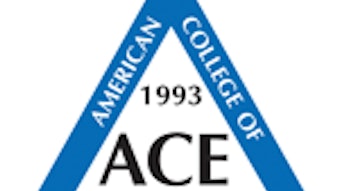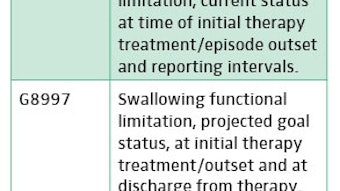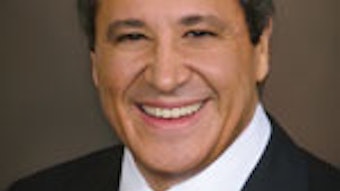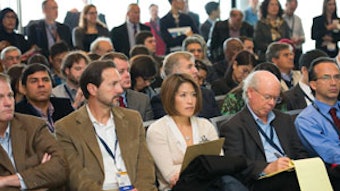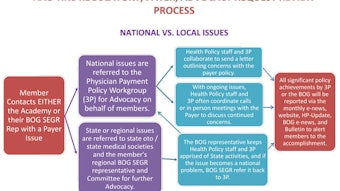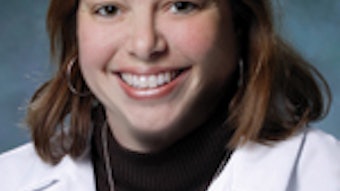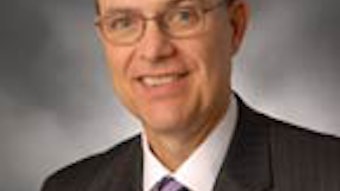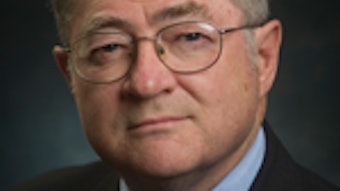Faces of Tomorrow Aids Ecuador
Reflection on a Medical Mission to Ecuador Dhave Setabutr, MD Chief Resident Penn State Hershey Medical Center Otolaryngology–Head and Neck Surgery Humanitarian Travel Grant Awardee They’re saying that they would like for you to be their baby’s godfather,” replied Mary Camille when I asked what the parents were saying at our discharge clinic. I asked again to make sure I understood what they had said. I was flattered and completely overwhelmed. I didn’t know how to respond. That single instant defined my mission trip to Ecuador and signified the influence our group had made on not only individual patients, but also families and entire communities. Since 2007, Faces of Tomorrow (FOT) led by Brian K. Rubinstein, MD, has performed countless cleft lip and palate repairs, provided prenatal counseling, postoperative speech therapy, and support for patients and families alike afflicted with these facial deformities. This past June, Dr. Rubinstein and his surgical team including Charles W. Shih, MD, of Kaiser Permanente Oakland, Nima Pahlavan, MD, of Kaiser Permanente Sacramento, Travis T. Tollefson, MD, of UC Davis-Sacramento and resident duo of Ethan Handler, MD, of Kaiser Permanente and me worked alongside a cohesive team of anesthesiologists, pediatricians, speech therapists, surgical technicians, a dentist, nurses, and Peace Corps volunteers in Quito, Ecuador, to provide care for the underserved population of children in the region who may not receive adequate treatment for their cleft lip or cleft palate. Setting up shop at TierraNuevaHospital with the assistance of local physician Patricia Jarren, our team saw and evaluated more than 70 patients and performed more than 50 surgeries. Operations included cleft lip and palate primary repairs and revisions, rhinoplasties, and palatoplasties after formal speech evaluations by our bilingual speech team. From Monday through Friday, we ran three operating tables, two of which resided in the same operating room. From the administrative check-in to the PACU setting and morning rounds, volunteers from Montana, New York, and Texas arduously facilitated each step in these children’s transformation. Much of the bureaucracy and wastefulness we see at many high-end medical centers in the United States was non-existent and replaced by basic healthcare supported only by the generosity of the human spirit. The reflection that still moves me was walking into the waiting room at 8:00 am on Saturday of our discharge clinic and seeing these families waiting for our arrival. They were so grateful and overjoyed with the outcomes of their surgery, each wanting a photo opportunity with any of us who had helped them along the way. We owe a debt of gratitude to the people of Ecuador who opened their hearts to us as co-workers, surgeons, nurses, and friends. They entrusted their lives and the lives of their children to a group of strangers who merely wanted to offer what we have been taught. I urge all residents to consider reaching beyond their comfort zone of Instagram accounts, flat screens, case logs, and publications to reach out to a community, local or abroad, that might benefit from what you’ve learned in your five years of residency as an otolaryngologist, I guarantee you won’t regret it. I know I won’t. This trip will serve as additional groundwork for return trips to people in need through Faces of Tomorrow and I only hope I will be granted the opportunity to return one day. I would like to thank the AAO-HNSF Humanitarian Efforts Committee and the Alcon Foundation for their support of my travel to this mission. For further information on the mission and ways to help, please visit www.facesoftomorrow.org.
Reflection on a Medical Mission to Ecuador
Dhave Setabutr, MD
Chief Resident
Penn State Hershey Medical Center
Otolaryngology–Head and Neck Surgery
Humanitarian Travel Grant Awardee
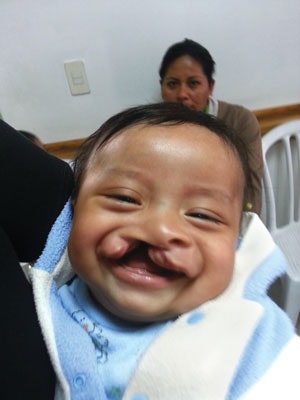 A cleft lip doesn’t stop this child’s brightness from shining through.
A cleft lip doesn’t stop this child’s brightness from shining through.They’re saying that they would like for you to be their baby’s godfather,” replied Mary Camille when I asked what the parents were saying at our discharge clinic. I asked again to make sure I understood what they had said. I was flattered and completely overwhelmed. I didn’t know how to respond. That single instant defined my mission trip to Ecuador and signified the influence our group had made on not only individual patients, but also families and entire communities.
Since 2007, Faces of Tomorrow (FOT) led by Brian K. Rubinstein, MD, has performed countless cleft lip and palate repairs, provided prenatal counseling, postoperative speech therapy, and support for patients and families alike afflicted with these facial deformities.
This past June, Dr. Rubinstein and his surgical team including Charles W. Shih, MD, of Kaiser Permanente Oakland, Nima Pahlavan, MD, of Kaiser Permanente Sacramento, Travis T. Tollefson, MD, of UC Davis-Sacramento and resident duo of Ethan Handler, MD, of Kaiser Permanente and me worked alongside a cohesive team of anesthesiologists, pediatricians, speech therapists, surgical technicians, a dentist, nurses, and Peace Corps volunteers in Quito, Ecuador, to provide care for the underserved population of children in the region who may not receive adequate treatment for their cleft lip or cleft palate. Setting up shop at TierraNuevaHospital with the assistance of local physician Patricia Jarren, our team saw and evaluated more than 70 patients and performed more than 50 surgeries. Operations
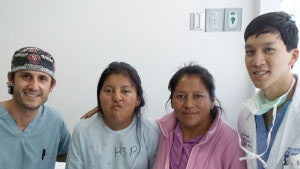 (L) Dr. Handler poses with a patient and mother in pre-op alongside Dr. Setabutr.
(L) Dr. Handler poses with a patient and mother in pre-op alongside Dr. Setabutr.included cleft lip and palate primary repairs and revisions, rhinoplasties, and palatoplasties after formal speech evaluations by our bilingual speech team. From Monday through Friday, we ran three operating tables, two of which resided in the same operating room. From the administrative check-in to the PACU setting and morning rounds, volunteers from Montana, New York, and Texas arduously facilitated each step in these children’s transformation. Much of the bureaucracy and wastefulness we see at many high-end medical centers in the United States was non-existent and replaced by basic healthcare supported only by the generosity of the human spirit.
The reflection that still moves me was walking into the waiting room at 8:00 am on Saturday of our discharge clinic and
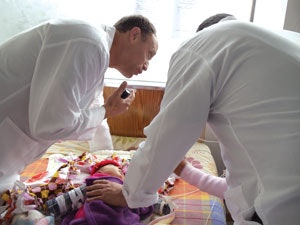 Dr. Rubinstein consults his colleague on their previous day’s surgery during morning rounds.
Dr. Rubinstein consults his colleague on their previous day’s surgery during morning rounds.seeing these families waiting for our arrival. They were so grateful and overjoyed with the outcomes of their surgery, each wanting a photo opportunity with any of us who had helped them along the way.
We owe a debt of gratitude to the people of Ecuador who opened their hearts to us as co-workers, surgeons, nurses, and friends. They entrusted their lives and the lives of their children to a group of strangers who merely wanted to offer what we have been taught. I urge all residents to consider reaching beyond their comfort zone of Instagram accounts, flat screens, case logs, and publications to reach out to a community, local or abroad, that might benefit from what you’ve learned in your five years of residency as an otolaryngologist, I guarantee you won’t regret it. I know I won’t.
This trip will serve as additional groundwork for return trips to people in need through Faces of Tomorrow and I only hope I will be granted the opportunity to return one day. I would like to thank the AAO-HNSF Humanitarian Efforts Committee and the Alcon Foundation for their support of my travel to this mission.
For further information on the mission and ways to help, please visit www.facesoftomorrow.org.
